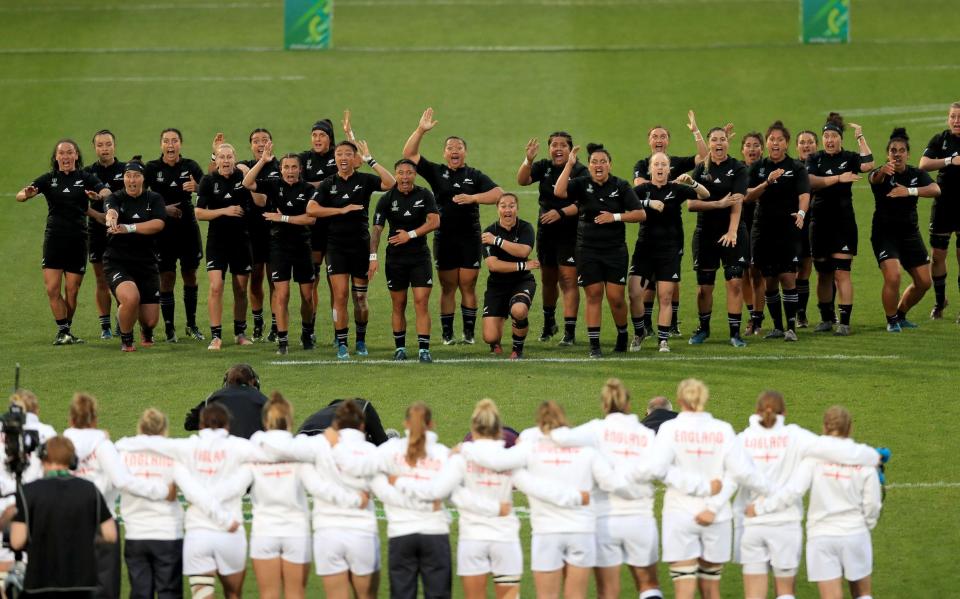England to host 2025 women's Rugby World Cup - and home win would change the game

England has been confirmed as host for the 2025 women's World Cup as World Rugby mapped out all destination countries for its global events until 2033.
Australia is to stage the 2027 men's competition as well as the 2029 women's event, it was agreed at a council meeting in Dublin on Thursday morning.
And in a first for the sport, the United States has been approved for the 2031 men's and 2033 women's tournaments in the hope of growing interest in America.
RFU chief operating officer Sue Day said: "We are thrilled to be hosting the 2025 women's World Cup - it's going to be incredible.
"Working closely with Government, UK Sport, Sport England and World Rugby, we will create a lasting legacy for women's rugby in England, the UK and across the world, both in terms of attracting more people to play and attracting new fans.
"As we have seen from other home World Cups in cricket, hockey and netball, a World Cup will further advance all women's sport. The tournament will also deliver significant economic benefits right across the country."
Analysis: Winning World Cup on home soil would change women's rugby forever
It seems somewhat premature to label England as firm favourites to lift the 2025 women’s Rugby World Cup. But such is their current dominance on the women's scene, with their remarkable 23-game winning streak, that is exactly what they are.
Should they win women's rugby showpiece in New Zealand later this year, in 2025 they will have a glorious opportunity to do what no England rugby team has ever done and seal back-to-back World Cup triumphs.
To achieve such a feat on home soil would be the stuff of dreams and would slingshot the side into a special tribe of English sporting teams that have tasted World Cup-winning success in their own backyard. Think the England men who triumphed in 1966, or the England women’s cricket team that defeated India at a packed-out Lord’s in 2017.
Economic forecasts have already predicted the tournament will boost the UK economy by more than £156m - a mouthwatering figure for a sport that, despite hardly being awash with riches, many predict will turn professional in the next 12 to 15 years.
The Rugby Football Union, long regarded as the trendsetter on the women’s scene after becoming the first union to professionalise its women’s programme three years ago, is not holding back in its ambitions for 2025, and rightly so. The main goal will be to sell out the home of English rugby for the final and set a standalone world record for the biggest crowd attendance at a women’s rugby match. It is a bold prospect, albeit not an unrealistic one.
A 15,836-strong crowd watched England dispatch Ireland at Welford Road in this year’s Women’s Six Nations - which equates to less than a fifth of the required number to fill the 82,000 seats at Twickenham. Evidently, there is a mountain of work to do in just three years to get more bums on seats.
But the RFU has a penchant for sustainably building the women’s game, which it has done to great effect through the creation of the Premier 15s, its top-flight women’s premiership. Hosting the 2025 World Cup is just reward for a union that has entered into a territory where no other rugby union has dared to tread in establishing a league which is now considered the leading destination for elite internationals from across the world and continually growing in profile.
Take the 4,101-strong crowd who watched Bristol Bears women’s team against Harlequins at Ashton Gate last weekend. This is the sort of momentum at the domestic level which will only swell post 2025, with the tournament itself likely to sow the seeds for fully-fledged professionalism at club level and catapult the league into a new era as it nears its 10-year anniversary.
And then there is legacy - that buzz word which inevitably pops up when a country hosts a major sporting event. What will that look like for women’s rugby? An uptick in female coaches - at least 1,000 of them according to the RFU - along with some 500 women umpires, thousands of new players. We can expect a flurry of tangible changes off the pitch too, from modernised toilet facilities and upgraded changing rooms at clubs to enrich the experience of women and girls at community level.
These latter points are important. Although female participation has exploded in recent seasons - with the number of registered female players at clubs across England jumping from 13,000 to 40,000 and some 80,000 more playing at school level - it is not uncommon for women and girls at grassroots to be denied use of first-team pitches, which are often exclusively reserved for men, or carefully juggle use of changing rooms' with boys' teams when matchdays overlap.
If England win the 2025 World Cup, such teething problems in the female community game could be consigned to the past. At the top, meanwhile, the landscape of women’s rugby in this country would irreversibly change forever.

 Yahoo Sport
Yahoo Sport 





































